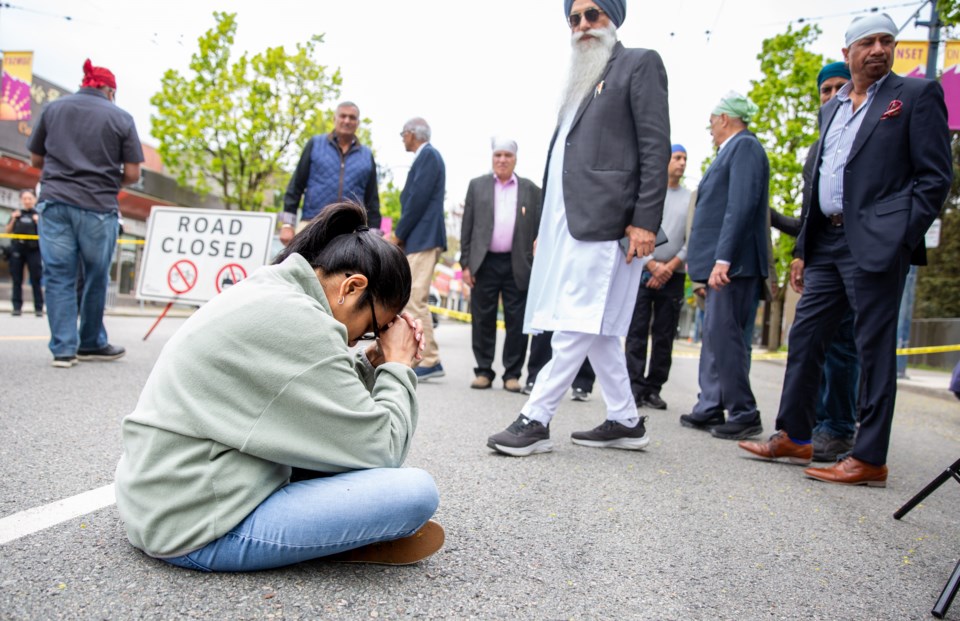The extraordinary tragedy we absorbed over the weekend—the 11 to die and the dozens injured from an SUV plowing through a celebratory Filipino block party Saturday night in Vancouver—provokes many questions deserving of answers.
Yet some of those questions are more perplexing than we seem willing to address.
The simplest one, for instance, is to focus on the emotional health of the driver who allegedly plowed indiscriminately through a crowd, and wonder how there weren’t obvious impediments to prevent him.
We can question why no one pushed back when, as witnesses suggested, a wooden barrier to the throughway was removed before the vehicle steamed through an unsuspecting crowd. And indeed, we need to ask why the heavy-truck or concrete barriers to the vulnerable open road weren’t proactively stationed as they commonly are in the community to avert the carnage.
We can look at those questions as evidence of fault or complacency, and perhaps through reflection ensure that these community gatherings secure a greater degree of protection from those who might take it upon themselves to unleash the most murderous acts.
But in searching through our security issues—as Vancouver Mayor Ken Sim has asked—we are accepting a culture of papering over problems that requires longer-ranged, systematic change none of our current politicians seem up to enlisting.
We need to understand initially how someone allegedly capable of this mindset, seemingly well-known to police, might have been in possession of a licence to run his car into a crowd—how it is, if the information we know is correct, anyone with that track record could still be legally enshrined to operate a weapon as substantial as a vehicle.
But we also have to take a step back and wonder how the various systems we have—the systems that presumably keep track of us at stages in childhood and into adulthood—so failed to discover and do something to protect the community from this darkened mind.
And we have to ask ourselves what we have created as a political culture—the lurching by our leaders in four-year cycles without long-term visions, the acceptance of emotional instability on the streets of our communities. And we need to ask if as a society we are equipped with the courage to tackle what is necessary to much more seriously mitigate the possibilities of further such acts.
At the moment we have too many habitual reflexes in the way.
When society grapples with horrifying acts of mass violence, we often default to calls for immediate security measures: more barriers, more policing, more surveillance. While practical safeguards have their place, they fail to address the deeper, more stubborn cause of many tragedies—unrecognized, untreated and unmanaged emotional illness.
If we are serious about preventing future heartbreaks, we have to shift our focus upstream and invest meaningfully in a long-term public, transparent mental health strategy.
First, early intervention must become the foundation. Many people who eventually commit acts of violence show warning signs in childhood or adolescence: social withdrawal, anger, untreated trauma, disordered thinking. We need systems that identify these signs early—not after a crisis—and deliver consistent, accessible mental health services in schools, community centres, and family practices.
Second, mental health treatment must move beyond sporadic crisis response. What’s needed is an assurance there is long-term case management for those at highest risk: personalized treatment plans, regular monitoring, and integration with housing, employment, and addiction services. Fragmented, short-burst treatment cycles only delay inevitable crises.
Third, we must reframe involuntary treatment laws. Safeguards are vital to prevent abuse, but the current legal standard—requiring "imminent danger"—is often too late. Clearer criteria that allow earlier intervention when someone’s deterioration is evident could prevent escalation without trampling civil liberties. Balancing compassion and public safety must be part of the conversation.
Fourth, governments must invest in secure residential treatment facilities for those who cannot function safely in society without intensive support. Not incarceration—care. Properly funded, staffed, and regulated long-term facilities must be part of any honest system of prevention.
Finally, political leadership must abandon the illusion of a quick fix. Mental illness cannot be solved on an election cycle timetable. It demands sustained, multi-decade investments in research, service delivery, professional training and public education. We must build a culture that understands emotional illness not as a failing, but as a treatable condition requiring resources and seriousness — just like cancer, diabetes, or heart disease.
The next tragedy is much more preventable if we have the courage to start now, knowing that the results may not be visible for years. True leadership faces this long, uncertain road—but walks it anyway.
Kirk LaPointe is a Glacier Media columnist with an extensive background in journalism. He is vice-president in the office of the chairman at Fulmer and Company.





